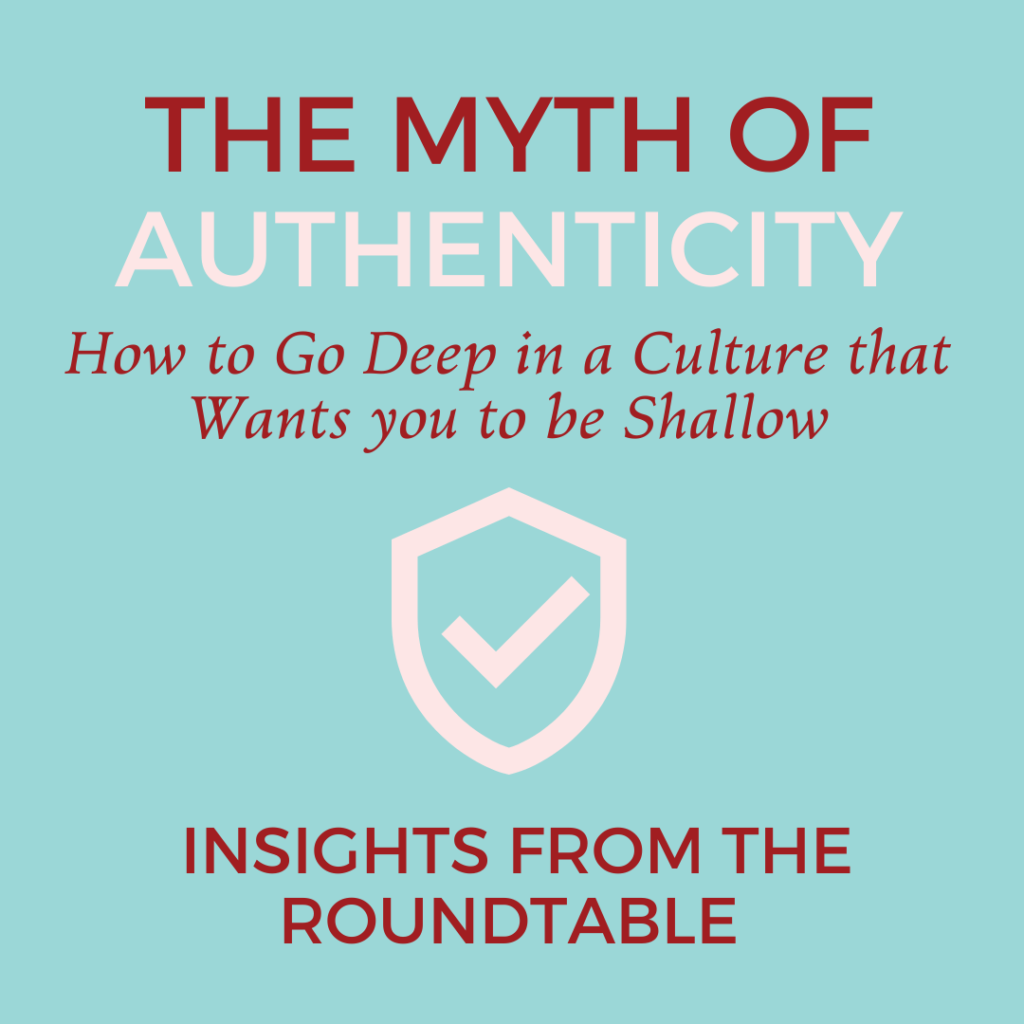There is no singular advice or roadmap to showing up authentically. It takes time, and it takes willingness… to do the work. By leaning into their vulnerabilities and strengths, the panelists in this roundtable are unified in their decision to show up authentically in their work and in their lives. They have all made the decision that the risks — and there are many, as is revealed in this riveting conversation — are worth the gain.
What’s more, they have all built significant platforms and have negotiated, overrode, or surfed the demands that come with extending their reach, influence or impact.
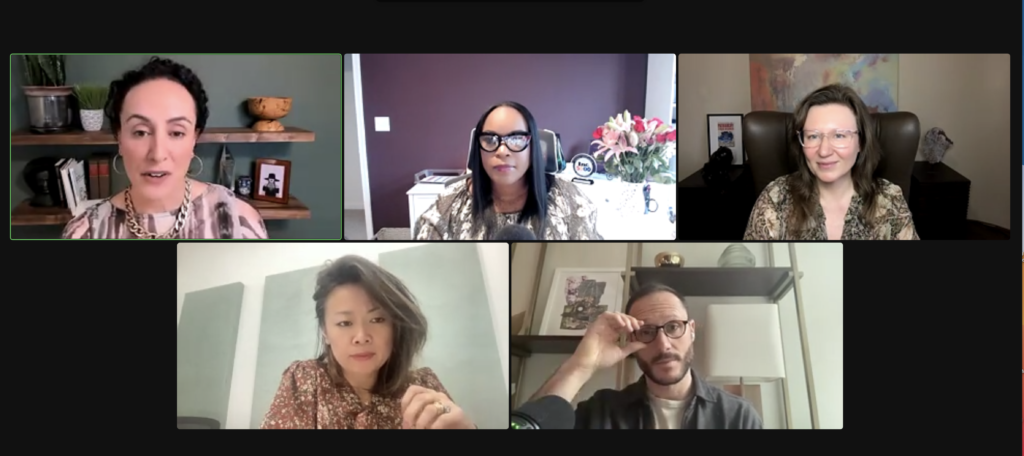
Speakers:
Claudia Chan: Claudia is a culture change expert and futurist, and a NY-Times celebrated author of This Is How We Rise — an inspirational “How-To” for women looking to create change at work.
Darnyelle Jervery Harmon: Dr. Darnyelle is a renowned speaker, best known for transforming and inspiring audiences to scale their businesses with grace and ease instead of hustle and grind with her MOVE to Millions framework.
Dr. Valerie Rain: Dr. Valerie is a psychologist who discovered Patriarchy Stress Disorder, and has created the only science-backed system for helping women achieve their ultimate success, happiness and fulfillment by healing this intergenerational trauma of oppression.
Connor Beaton: Connor is the founder of Man Talks, an international men’s movement focused on health, wellness, success and fulfillment and author of the newly published Men’s Work. Connor has developed a revolutionary approach to healing the Shadow — the part of our psyche that causes us to self-sabotage and has spent the past decade helping men and women on personal and relationship growth journeys.
Host:
Eleanor Beaton: Eleanor is the founder of Safi Media, an education & coaching company for women entrepreneurs. Safi Media is committed to advancing global gender equity one woman-owned business at a time. Together with her colleagues, Eleanor is on a mission to double the number of women entrepreneurs who scale past $1M in revenue by 2030.
What’s Your Story?
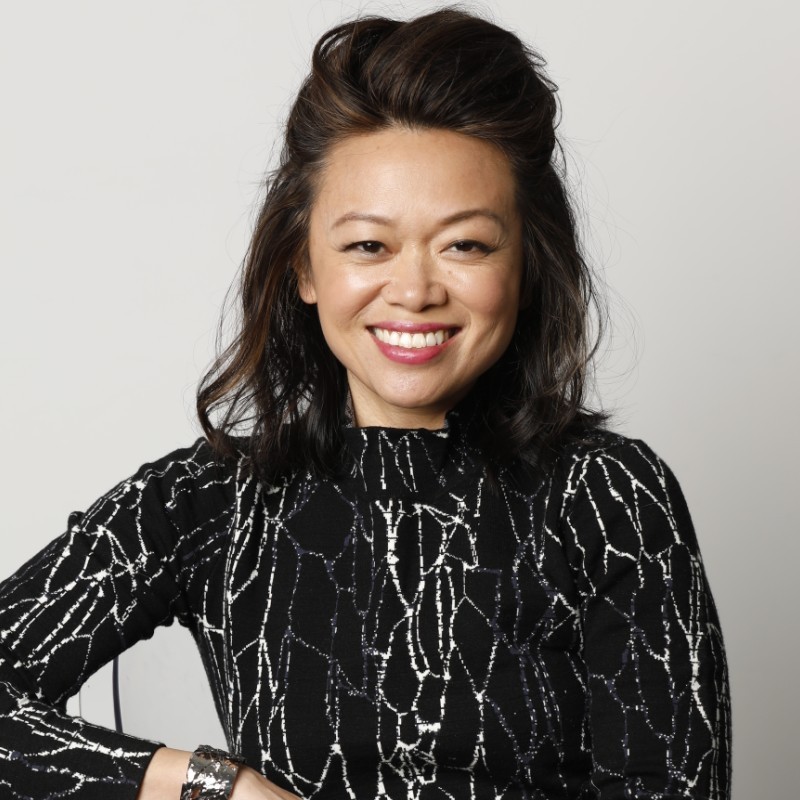
It starts with the self, reconciling and possessing your own story. At different parts of the conversation, our panelists shared their background and personal trajectories as insight into what it took them to access their true selves. Claudia grew up in a traditional Chinese family whose expectations for success were very fixed. Darnyelle was raised by a step family who didn’t want her, words of rejection fixed in her memory. Connor’s childhood was spent in small-town, sub-zero Alberta, with the gendered culture that accompanies it. And Valerie’s upbringing in the Soviet Union embedded in her insight about how collective culture has certain benefits.
“I need to live my life in a way that is authentic, and rip away from culture so that I can step into my greatest power” said Claudia of what she had to let go of. “So for me, wholeness is really an inward journey of understanding that so much of me has been holding on to this perfectionism to feel safe.”
What Issues Threaten our Relationship to our Authentic Selves?
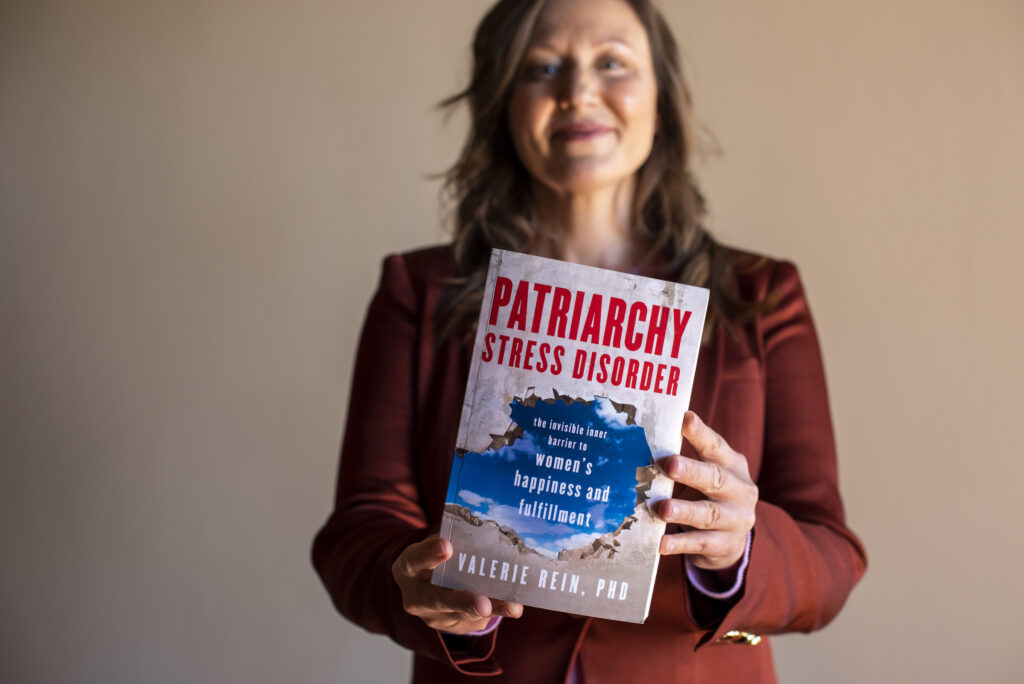
Mental health has become a significant issue in the US and around the world. The United States surgeon general has issued detailed advice around addressing mental health in the workplace. Claudia pointed out how authenticity has a strong correlation to expectations of perfectionism, which lead to mental health issues.
Patriarchy, says Valerie, and its binary nature limit the full gender spectrum. In her book, The Patriarchy Stress Disorder, Valerie ties together authenticity and trauma. She explains how trauma is the result of an event or a circumstance that makes you feel unsafe in your fullest authentic expression of self. Trauma under the patriarchy can play out in many ways, at the very least dimming the lights that shine within us.
“What I’m seeing is that women’s biggest desire, that brings them to this work, is a quest for freedom and authenticity. They go hand in hand. To me, to be authentic means to be alive. And to be alive is to be evolving, which is the opposite of fixed. And every culture keeps us fixed.”
Strength in suppression, says Connor, is a “not very good rule” that men abide by. It results in a cascade of negative positioning for men, stifling compassion, vulnerability and authenticity. Such qualities are perceived as weak and fall outside of the container for what is expected of men. Men struggle with their authenticity because it risks going against the confines of where they feel safe, where they are expected to be and to belong. “Part of the challenge of finding a sense of self expression is to risk not belonging.”
The expectations and social constructs that expect us to be one way, says Darnyelle, mean there is a lot to overcome. She was raised to fit into a construct that she didn’t fully understand and that positioned black women in one way. “I made the decision a long time ago that I am a disruptor. I don’t need external validation.” She talks about the courage it takes to break free and do your own thing.
How Do You Centre Yourself?
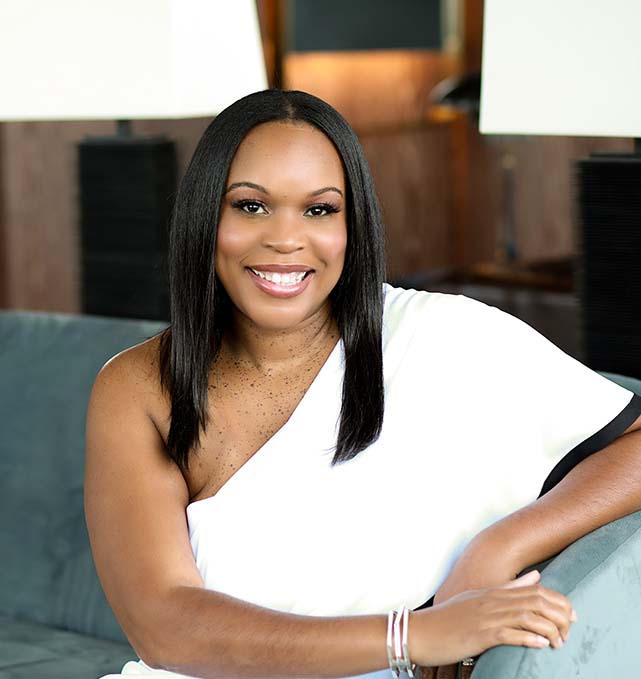
For both Darnyelle and Claudia, their faith — a relationship to a higher power and belief — grounds their positioning in themselves and the world. Claudia talks about the powerful transition she felt in herself when she found faith, which centered her fight for culture. Darnyelle advises that, to know yourself you need to come in alignment with your creator: “If you want to know the purpose of a thing, you need to ask the creator.”
There is strain that comes from showing up in multitudes, presenting a different “self” to everyone, says Claudia. Darynelle explained how everyone gets all of her, whether in her work or personal life. When people hire her, they know what they are getting, and she has never lost business because of it. “Whatever your personal convictions are, you are going to be you will always win if you are whoever you are all the time. Other people will bend or lean into it or they will get out of the way.” Presenting yourself fully can result in these “Moses Moments” she says.
Walt Whitman (from the chat)I am large. I contain multitudes.
When we connect with each other’s suffering, says Connor, “it broadens our capacity to see other people’s pain and to honor that.” We’ll never feel like we belong all the time, which is part of the human experience from an early age. Gabor Mate talks about the notion that we trade authenticity for safety or belonging in our childhood. When we return our attention to suffering, it can be divisive or connective, says Connor. “Part of the problem with authenticity that we’re having is that there’s a spiritual bankruptcy within our culture.”
Point of Reflection: Valerie recommends you consider the capacity you need to cultivate in yourself to temporarily go on a journey of non-belonging as you break away from your cultural conditioning.
You need to be conscious of the environments that you plug into and the people who join you on the quest. “We start trading authenticity once we enter this significant relationship and become a mother.” And there are moments in our journeys “when patriarchal conditioning gets activated in its different facets. It’s like the moment, the archetypal moment of taking a bite of that patriarchy poisoned apple and going to sleep in certain ways.” Moments like reaching sexual maturity, getting married, becoming a mother or achieving a career goal can trigger a shift in cultural compliance and infringe on our authenticity in major, yet unnoticed ways. Valeri’s advice: don’t get hypnotized, stay awake, be aware and find others who can support you.
Our Deepest Fear by Maryanne Williams (Dr Valerie)When we let our light shine, we unconsciously give others permission to do the same.
Why We Need to Reject The Cult of Specialness
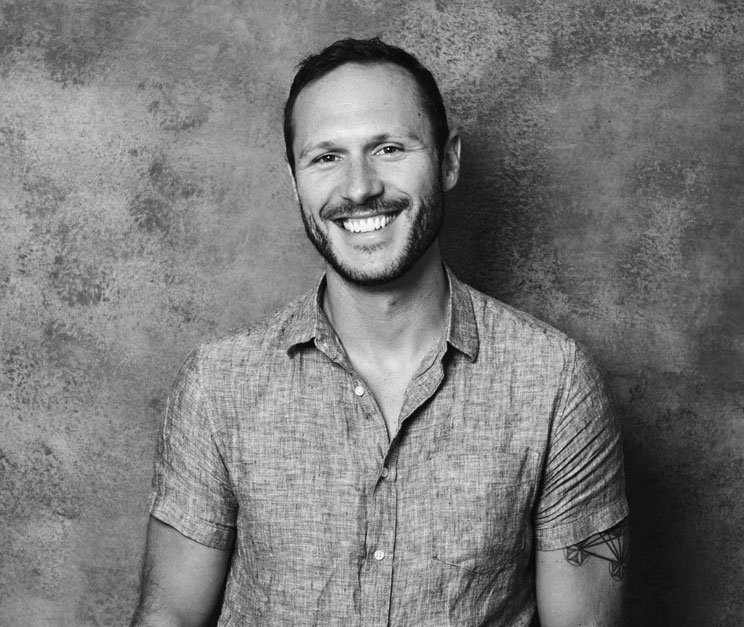
Connor BeatonWe live within a cult of specialness where people are so unwilling to go on the journey of knowing who they are that we cling to needing to be special, feeling special. And I think that authenticity is an act of rebellion.
We are in a stage, explained Connor, where authenticity is an act of rebellion. This stage, he says, is an “immature time” in America, as people look for examples of authenticity in all the wrong places. He talked about a responsibility to model versions of authenticity that reflect different parts of the maturation journey. For many people who don’t feel they belong or who can’t be their true selves, this can be perceived as a form of permission that they are looking for.
“We cling to needing to be special, which is performative, it’s not real, it’s fake and it’s an illusion, and it does more harm psychologically and emotionally and physically and culturally and socially than anything else that we could possibly imagine.”
Eleanor explained a recent longitudinal study that compared the percentage of teenagers decades ago to the percentage of teenagers today who view themselves as special — that’s a whipping 90% today vs very few historically. The study presented an inverse relationship between the propensity to describe yourself as special and resilience.
Individualism is a framework for this “culture of specialness” that is so prolific in the Western world. And it’s with this bias of individualism that we approach the conversion about authenticity, points out Valerie, who grew up in a collective Soviet culture. There is so little room for individual expression in collectivist cultures, meanwhile individualist cultures are swinging to the opposite extreme. Cancel culture, a byproduct of the cult of the individual, is a huge threat to authenticity. On the other hand, some of the unique qualities of authenticity are only accessible in a collective environment. Valerie introduced Indra’s Net, a the yogic wisdom tradition where each jewel in the net reflects uniquely the light of other jewels through different facets.
Mary Oliver, Wild Geese (Darnyelle, on building brands that want their place in the family of things.)Announcing your place in the family of things.
How do you Stay True to Yourself and Expand your Reach in a Meaningful Way?
What I always share with my clients is to be personal, but not private. I think that there’s a time and a place for your personal stories. We all know that people buy when they like you and they trust you. The only way that people are going to know you like you and trust you is based on your ability to share personal anecdotes about who you are.
You also have to be in control of the story. There is a point in time in your journey where the story holds the power, especially if you haven’t done your mental health work and gotten [support to] you see from being a victim and you actually become a victor. That’s when it comes fair play for a personal story that connects me to an audience, to see if I might be able to solve their problem, because they now know I’m a real person.
— Darnyelle Jervery Harmon: speaker, and founder of the MOVE to Millions framework.
Be true to yourself, but not for the reason of growing your audience. This is where I see a lot of people going wrong… Your vulnerability is the asset, but it’s not the product. Your story is an important part of it, but it’s not the product you’re selling. And this is what I see a lot of people doing wrong online — they’re talking about their story and their past as if it’s the product that they’re selling. You have to have a skill to back it up. You have to have a product to back it up. You have to have something that then people can can come into, whether it’s a course or a book or you have to have something of value and you have to be able to present your story in a in a vulnerable way that is real.
— Connor Beaton: founder of Man Talks and author of the newly published Men’s Work.
I have been progressively more and more myself as I’ve been engaging with this work and this mission. If anything, I’ve been suffering from the reverse imposter syndrome for as long as I can remember. Whenever I’m playing small, I feel wrong. I feel like an imposter because I’m not living the bigness of the mission that wants to come through me.
— Dr. Valerie Rain: psychologist and author of the Patriarchy Stress Disorder.
The first is continuing to do that inner work, which is going to be really critical to showing up, to having a platform, to scaling and to being authentic. Number two is not to confuse immensity and impact. I tend to focus on impact. You can go deep and wide… you have to have a million likes, a million followers. Don’t confuse your business model with the being of who you are, your worthiness. The third is not to chase the obsession with being huge, and not to confuse that with being worthy. Give yourself the time and the space again to heal, to build, to rise into your next elevation in your platform and focus on impact, not immensity and and the worthiness like you already are.
— Claudia Chan, culture change expert and futurist and a NY-Times celebrated author of This Is How We Rise
About Safi Media:
Founded in 2015 by Eleanor Beaton, Safi Media is an education and business coaching company that backs bold women leaders who are advancing gender equity through entrepreneurship.
Everything we do at Safi Media is reverse-engineered to produce our vision: Advance a model of economic growth that nourishes the planet, one woman-owned business at a time. To accomplish this vision, we have set an ambitious mission: double the number of women-founded companies that sustainably scale past $1M+ in annual revenue by 2030 through business coaching, entrepreneurship education and storytelling with a gender lens.
Safi Media is defined by our belief that when women earn, we all win. You can read our full thesis here.
If you missed this conversation and want to hear the full insights shared by our panel of world-class leaders and thinkers on the MYTH of authenticity in business, you can click through to access the replay.

